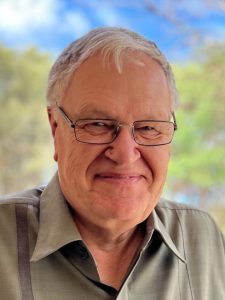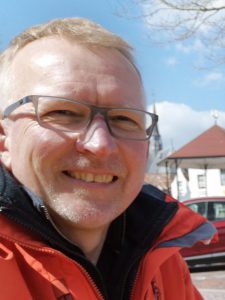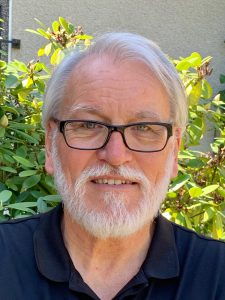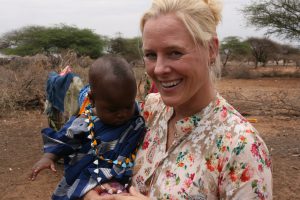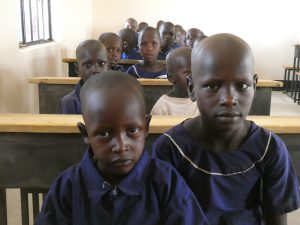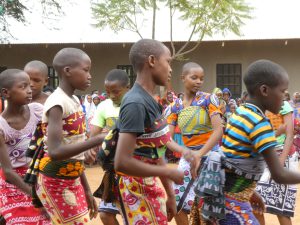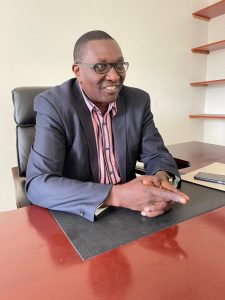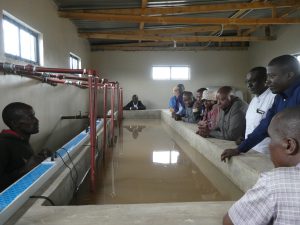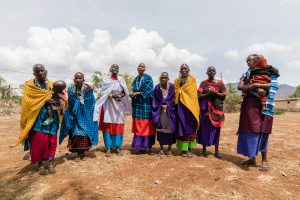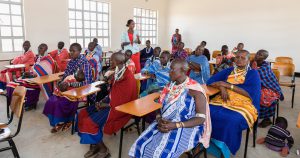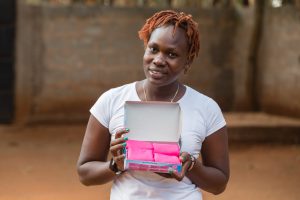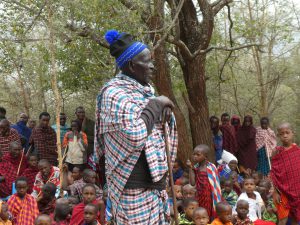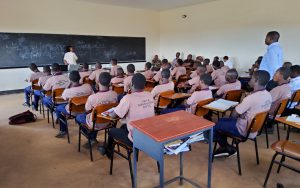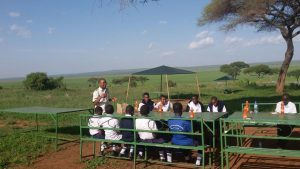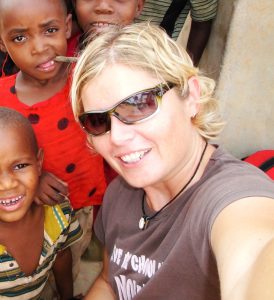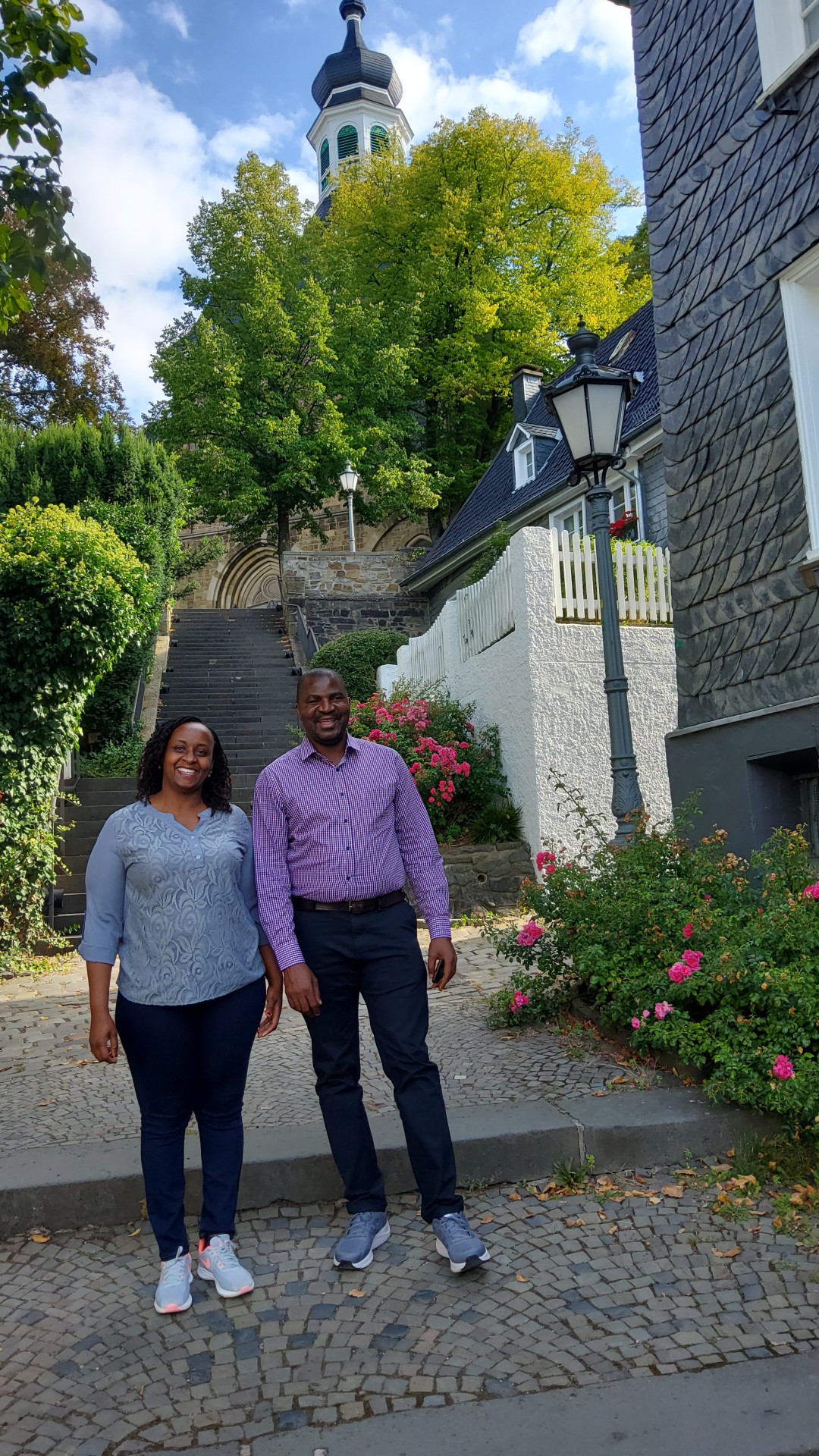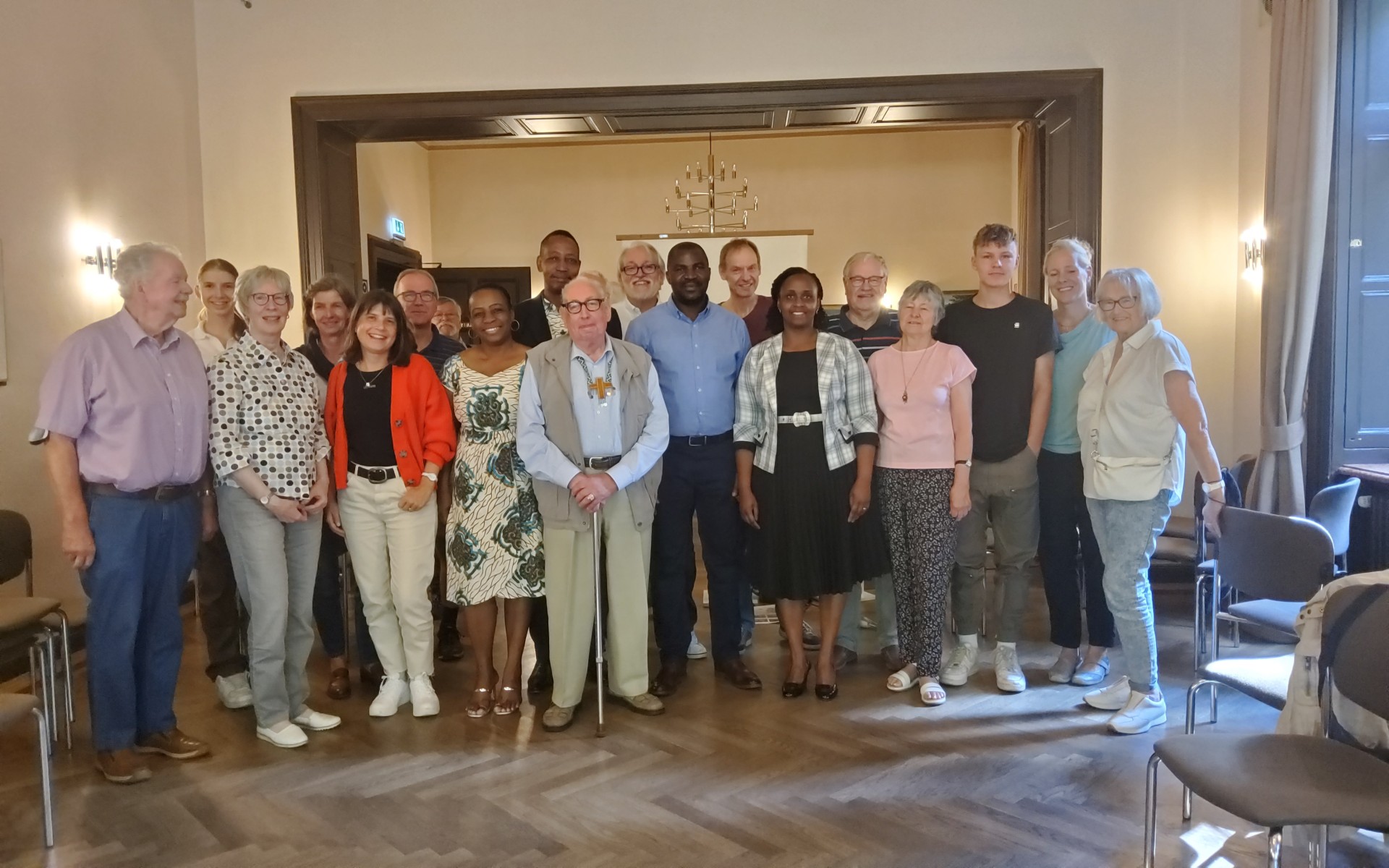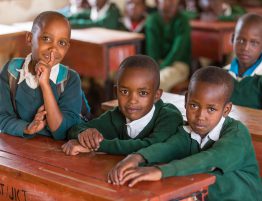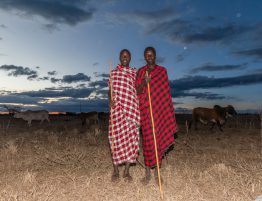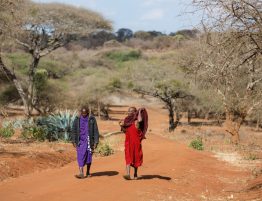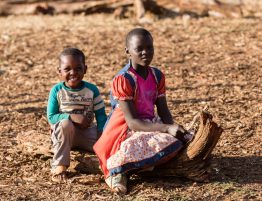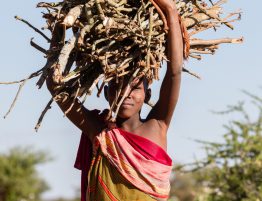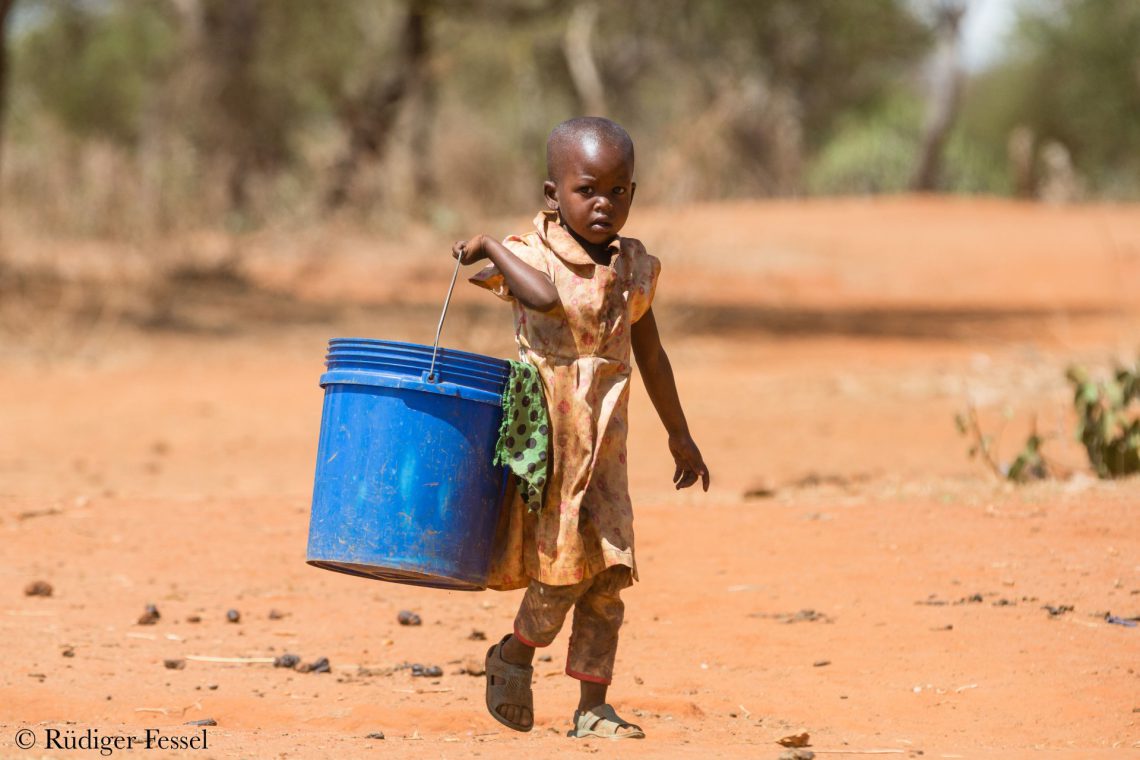
A successful year for upendo
Again in 2022, we were able to realize all of our projects in Tanzania as originally planned and we have every reason for being grateful. In addition to the water filtration project in Naiti, 11 primary school projects were handed over to the Tanzanian government, who runs the schools, in cooperation with the Tanzanian non-governmental organization (NGO) ECLAT. Some schools have been renovated, others expanded, and some are entirely new. All schools are public and since school fees are no longer charged in Tanzania, many children in the remote and less developed areas can now attend school. In addition to the women’s work in ECLAT’s seminar center and in the villages, ECLAT 2022 implemented a sanitary pad project for school girls and young women. The family planning campaign addressed to men and the mentoring of vocational students in their professional set-up after completion of their training were launched successfully. In addition, our environmental and nature conservation-related projects with the PAMS Foundation continued. This involves the education of young people at secondary schools in the area of the Tarangire National Park as well as the protection of the elephant corridor at the Ngorongoro Crater.
Our association
upendo was founded in 2014. Founder and chairman of the association is Dr. Fred Heimbach. In 2022 Matthias Schmid was elected vice-chairman. The board also includes Joachim Buchmüller as treasurer. We are proud of the recognition of our work that we also receive in Germany: Dr. Fred Heimbach was awarded the Federal Cross of Merit on Ribbon (“Verdienstkreuz am Bande”) by the prime minister of North Rhine-Westphalia last year for his many years of commitment for and in Tanzania.
Greeting by Minister Reul, patron of upendo
Dear members, supporters and friends of upendo,
as patron, I always pursue the commitment of the association and its partners in Africa with great interest.
As different as the objectives of the projects may seem, everything is interrelated. Basically, it is always about learning and knowledge: For example, about family planning – because often the women have problems feeding their children, clothing them, taking care of their health and sending them to school. And also the clean water projects are not only about providing filter systems, but also about imparting knowledge – namely that contaminated water leads to diseases that are avoidable. It is this true-to-life support that defines upendo.
“Upendo” is Kiswahili and means “love”. The association could not have a more suitable name. The admirable work of Dr. Heimbach, the board of directors, all members and supporters of the association show great affection for Tanzania and its people.
Cordially Yours, Herbert Reul, prime minister of North Rhine-Westphalia
WHERE does upendo work?
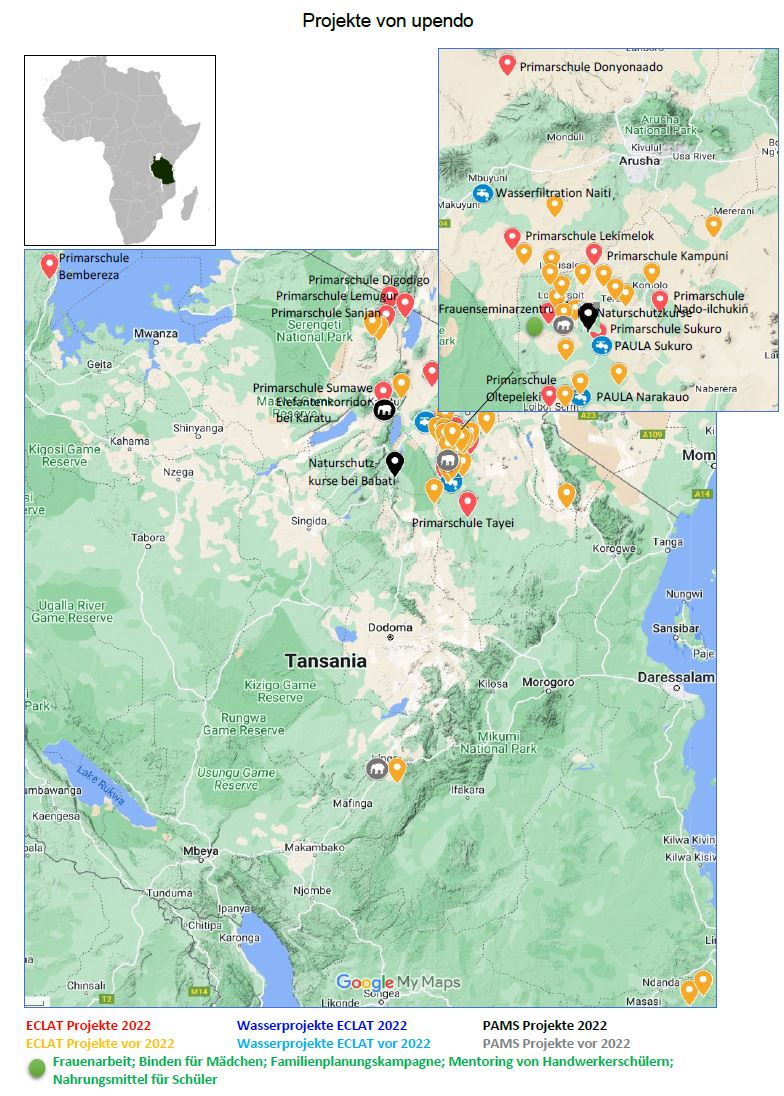
A personal perspective on the women’s work and the women’s development projects of ECLAT and upendo
All the descriptions and pictures of the development work of upendo could not convey the impressions that a personal immersion in the world of the Maasai gave me. Before, it was just pictures and oral stories that somehow made me thoughtful and concerned just at the moment of confrontation, but which were immediately pushed aside and forgotten because they had nothing to do with my personal everyday problems. Moreover, women’s work has so far played a subordinate role for me as a European woman of our time who is independent and working as a civil servant.
Our trip offered us insights into the multi-layered women’s work of ECLAT. At the beginning of our trip Philomena and Catherine took us to three of their women’s groups. In all the groups we were warmly welcomed by women of all ages. Some were still rather children, already carrying their own children in scarves on their bodies. When we asked, it turned out that these children were around the age of my fourteen-year-old son, but they did not know their exact date of birth. They had never seen a school from the inside and attending school with a child would be denied them for the rest of their life. They proudly presented the profits they had earned through so-called micro-credits from ECLAT, products such as honey, soap and flour. Until then, money was exclusively a man’s business. I admit that at first glance, these seemed to me to be only small things, the sale of which can certainly only generate a small revenue. At second glance, however, it is an opportunity to step out of the previous isolated role of women without schooling, to produce a product, to trade and to learn how to handle money. Skills that thanks to ECLAT they are now allowed to learn in order to earn their own income.
Nevertheless, all ECLAT women’s work also requires work with men. Every step in the development process is only possible with the consent of the men. The conviction of men can only succeed through a sensitive, respectful approach to the culture of the Maasai. Therefore, I consider the cooperation of upendo with the local organisation ECLAT to be essential, especially in the field of women’s work. This became particularly clear in the opening event of the family planning campaign in Lorokare to educate people about contraception and how to use it. ECLAT first of all did important work to convince the tribal elders, who due to their high reputation are important multipliers for the success of the campaign. In Lorokare, we were allowed to be guests and admire the wonderful dances and songs of a Maasai choir in its colourful robes. The song lyrics were written especially for this event and deal with the consequences of too many children for women who have to provide enough food, clothing and health. Schooling is also not affordable for too many children. Songs reach our souls in a completely different way than spoken and readout texts.
I was most moved by the encounters with the Maasai girls and women, whose lives have been transformed in an exemplary way through education, and this partly with the support of ECLAT and upendo. Little Pendo had hurriedly made her way home from school to welcome us in her boma. It was my first visit to a Maasai boma. The oppressive heat, dryness, huts made of cow dung and too many children in cramped living space were contrasted by a little girl in school uniform as a ray of hope, who now was given a perspective for a future outside a boma. Equally impressive is the life of Selina Daniel, who thanks to her education found her way to ECLAT as a staff member and ultimately helped her village to have a school building. Selina also showed us her parental boma in Lemugur, where her little siblings still live. When I came face to face with this confident, elegant, English-speaking Maasai woman in her birthplace, I was struck by the incredible development she had undergone through education. Equally formative was the encounter with the student Mamaule, who took her destiny into her own hands years ago and sought help from ECLAT and upendo and is now aspiring to be a teacher, which of course was particularly moving to me.
Ultimately, however, the education of the entire Maasai population is the key to further development. The women’s work of ECLAT and upendo does not only involve the education of women’s groups and families, but in the long term and in a sustainable way, especially the school education of as many children as possible; boys as well as girls. Only through education made accessible for many can a real change in the mindset of the new generation develop, and this became evident to me during our visits and the attended handover ceremonies of the primary schools built or renovated by ECLAT and upendo: any girls are already sitting in the crowded student benches.
My perspective on women’s rights and women’s work has changed fundamentally through this trip. I thank all the women in Europe who, through their fighting spirit and courage, have made this equal life possible for me, which I personally can gratefully accept. Our task now is to preserve these rights – and we have the opportunity to support organisations like ECLAT and upendo in their women’s work.
Sabine Buchmüller
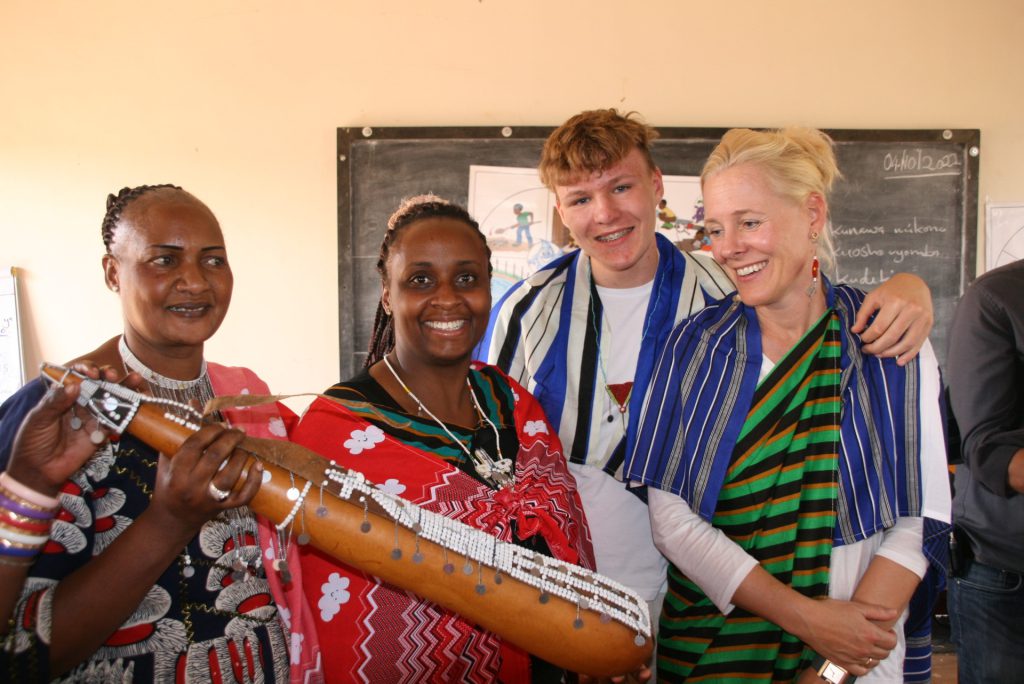
Primary school projects
In total, with the 11 school projects handed over in 2022, ECLAT and in the past years have expanded, renovated or built almost 40 primary schools in Tanzania.The map on page 3 gives a good overview. But not all children go to school and far too many children are still crammed into one classroom. This is because the number of children is increasing and so is the percentage of children who actually go to school. While 10 years ago maybe 30% of the children in the remote areas where we are engaged went to school, today this figure is surely 70% or more. That’s why we don’t want to diminish our efforts, so that one day really all children can really benefit from schooling.
At the beginning of 2022, the rainy season started much too late, so that many families suffered from hunger and children did not come to school. Fortunately, thanks to special donations, ECLAT was able to deliver 90 tons of maize and beans to a number of the schools so that the children had something to eat and could go back to school.
A thank you from Toima Kiroya, Chairperson of ECLAT:
I would like to thank our donors for their financial support, which has enabled ECLAT to continue implementing social projects in Tanzania in 2022. In addition to the projects for school education of children, the empowerment of women and the collection of drinking water, we were able to introduce further capacity building projects, such as family planning or the mentoring of craftsmen after the completion their training. All infrastructure projects completed in 2022 were handed over to the Tanzanian government who is the operator of the facilities. I would like to express our appreciation and gratitude for the generous support of the donors. We would also be grateful to our donors if the community projects planned for 2023 could also be funded. We look forward to continuing our collaboration with upendo and other donors in the future.
Water project at the Naiti reservoir
In 2022, ECLAT and upendo the population in Naiti were able to hand over a new plant for the production of clean drinking water from the (artificial) reservoir near Naiti. We attached great importance to using only technologies adapted to local conditions so that the plant can be operated permanently by the village itself, without the continuous support of ECLAT. The population in Naiti is pleasantly well-disciplined and the water committee well organized – best prospects for a sustainable use of the plant by the village. The water is pumped from the lake and filtered through special membranes in a large tank so that people can drink clear water free of particles and germs.
Women’s work
Women’s work has been part of ECLAT’s central work from the beginning. As a Maasai woman, Philomena Kiroya wants to strengthen the position of women in her culture – and we are happy to support her in this. A great deal of change has already taken place in the past few years:
Women meet each other freely in their groups, and learn about the basics of hygiene, education and health, exchange information with each other, get some money of their own and learn to manage with it. Some of them already have economic success: small steps towards a self-determined and self-responsible life. It is a joy to witness today how informally and freely they welcome even guests from faraway Europe.
Sanitary products for schoolgirls and young women
It is not uncommon for girls in developing countries not to go to school during their menstruation days because of a lack of hygiene products, or they make use of poor and unhygienic means to help themselves. We therefore invited the head of the Ugandan women’s organization Gejja to Emboreet to inform the children, girls and boys alike, about menstruation, and to explain to the girls and young women how reusable and washable sanitary pads can ensure hygienically safe use during these days. This was done mainly in the context of school lessons and ECLAT was thus able to distribute a total of 1,000 packs containing each 2 sanitary pads to the girls and women during the meetings. And Gejja taught women’s groups from ECLAT how to sew such sanitary pads themselves. Maybe this will become a new business model for one or several of the women’s groups.
Family planning campaign for men
Among the Maasai, the upbringing and feeding of the children is entirely in the hands of the women. It is not uncommon for them to have 8, 10 or more children and they find it difficult to feed and care for them adequately. The women recognize their situation and ask for family planning options, but usually the men do not agree. ECLAT has therefore launched a campaign for the acceptance of family planning among men. In addition to spoken words, a choir sings captivating songs about the meaning of family planning for the Maasai. The singing emphatically expresses the necessity of such planning if they do not want to continue to suffer hunger and offer their children the chance of a better life. With success: many, especially men, take part in the events in the villages, and several thousand women have received contraceptive advice and treatment at the health stations.
Mentoring craftsmen students
Due to the graduation dates of the Vocational Training Centre, this project only started towards the end of last year. We want to support the students of the center after their training when they establish themselves as craftsmen in the Simanjiro district. Already during their vocational training, they will be prepared for their professional life in additional seminars, and an experienced mentor will be available to advise and accompany them after they have completed their training. The best students will also receive a toolbox to help them start their careers independently.
Nature and environmental protection with the PAMS Foundation
The project to protect the elephant corridor at the Ngorongoro Crater was continued last year, as was environmental education at secondary schools on the edge of the adjacent Tarangire National Park. There, the pupils learned about the meaning of nature and animal conservation, how to plant trees and visited the neighboring national parks.
A thank you from Krissie Clark, Chairperson of PAMS:
To all the donors that have supported our work through Upendo. We just wanted to say a heartfelt thank you. Through your support we are empowering the next generation of children to have a greater understanding of their natural environmental, and its importance to them and Tanzania. We have also ensured a critical wildlife migratory corridor stays intact to enable the movement of elephant and other wildlife. By supporting Elephant Guardians in this corridor area, we are also minimising conflict between elephant and people. Through this reduced human-elephant conflict, we are saving people’s lives, minimising food crop damage by elephants so people have food to eat, and saving the lives of elephants.
Income of upendo in 2022
upendo thanks all those who support our work in whatever form, also on behalf of the people concerned in Tanzania. Special thanks for the support given to upendo according to the 2022 cash report go to the Friends of the Foundation and the following organizations:
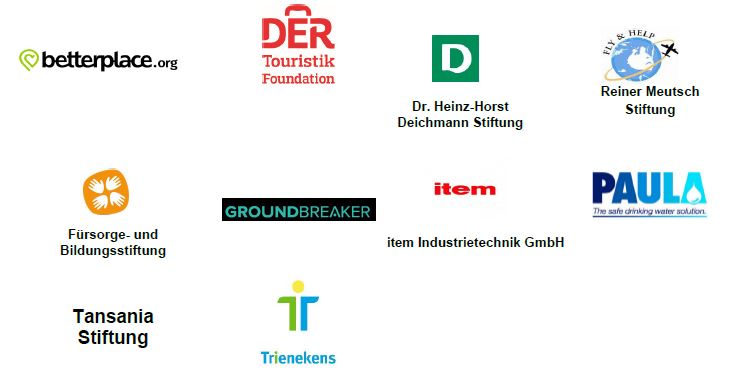
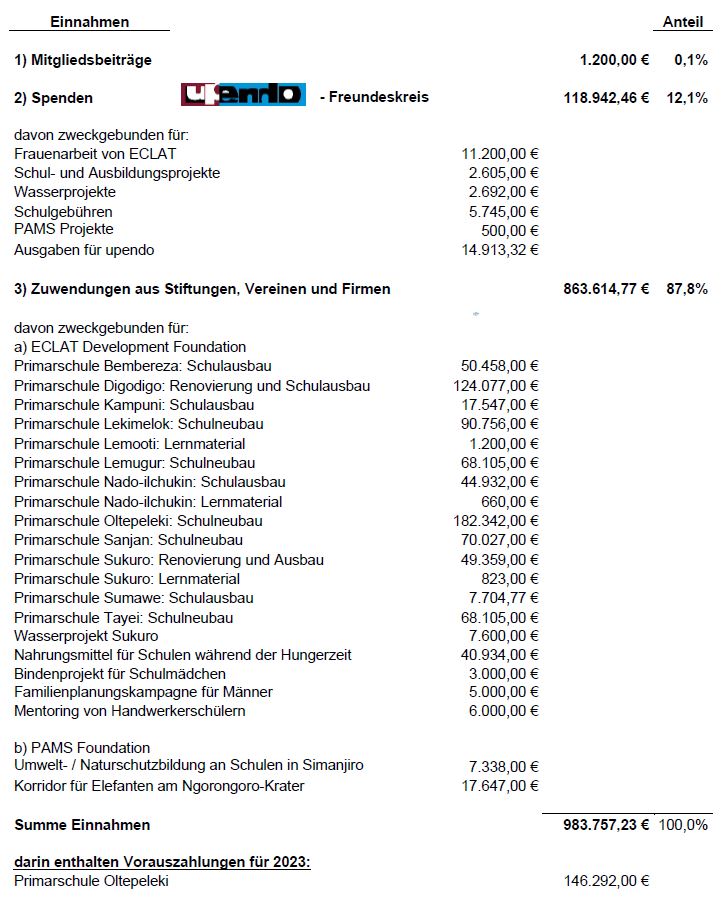
Expenditure of upendo in 2022
According to the cash report 2022 upendo had the following expenses for the realization of projects in Tanzania:
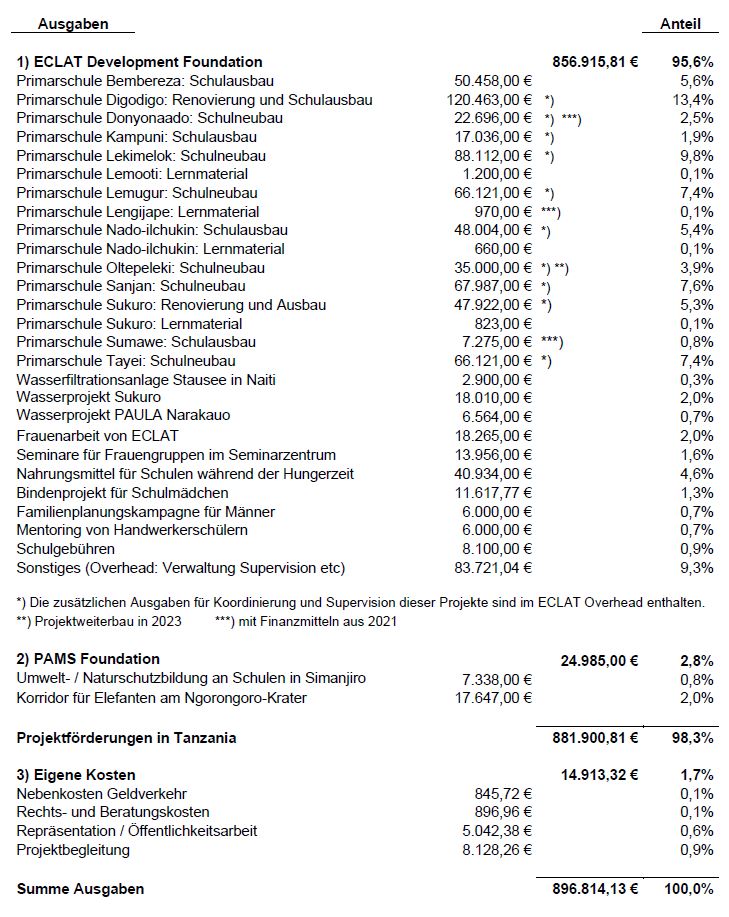
Transparency is a central issue for upendo. Our annual cash reports are subject to an external audit by the independent external tax consultancy JC Junga Consulting GmbH, Solingen in Germany. The records on which the 2022 cash report of upendo is based were also examined by this tax consulting firm and checked for compliance. In a letter dated 06.03.2023, the tax consulting firm JC Junga Consulting GmbH certified the accuracy of the upendo cash report for the year 2022, which is also published on our website along with the cash balance at the beginning and end of 2022.
Information meeting 2022
On 3 September 2022, after a longer break due to Corona restrictions, an information event for our friends and supporters in Germany took place again. Catherine Maguzu and Bakiri Angalia were with us for the first time for a counter visit. While Catherine supervises and advises the women’s work and the “capacity building” projects of ECLAT with her experience, Bakiri is responsible for the construction projects, especially at the schools in Tanzania. They reported ” from first hand” about our work in Tanzania and also competently answered the questions about the cultural and political background: it was an entertaining and informative event for all participants.

